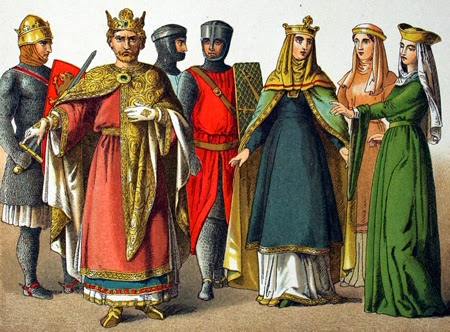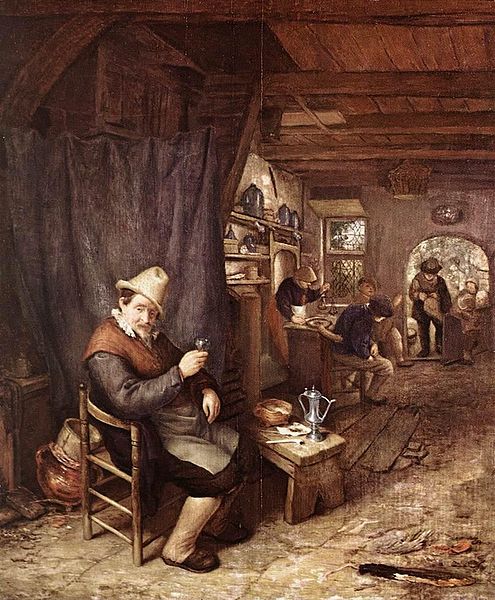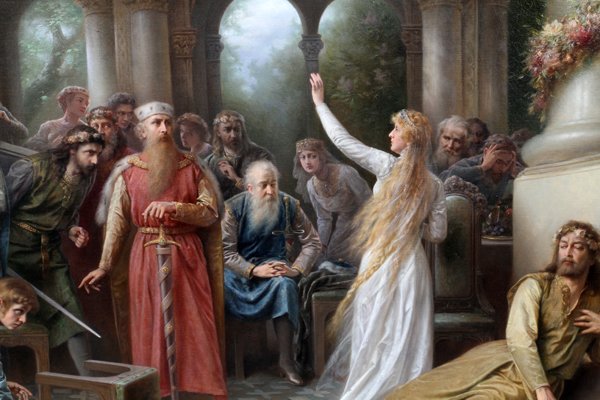Lysandan
The Lysandans were a light-skinned human ethnicity that originated from the region of Keller and expanded further into the Dwarven region of Lisanrik, the regions together being known as Lysandus.
Naming Traditions
Feminine names
Female names for Lysandans seem to love softer sounding vowels in contrast of hard consonants, which is why so many of the names are sprinkled with them. Common names for women would be "Guinnevere", "Eda", "Aetha", "Caroline", "Donna," follow a rule of the vowel following the end. The rare exception is a name like "Elizabeth" that ends with a consonant, but it also has four vowels in it to make it sound soft.
If you are from southern Lysandus, it is actually not too uncommon to see women with Dwarven names. "Yolimora", "Gwynlynn", "Marva", and "Lysdelle" are female Dwarven names that mix well with Lysandan dialect. The most popular, however, is "Dariah", because of Queen Dariah naturally,
Masculine names
Male names for Lysandans follow a softer vowel sound too, though the consonants take priority in their names, especially at the end of them. "Richard", "Aethel," "Alfred", "Erik", "Arthur", and "Baldwin" are excellent examples of these given names. Of course, not ever name falls into this pattern. From the region of Keller you will find harder sounding names, like "Scott", "Craig", "Duncan", and "Gregor".
Like women names in southern Lysandus, it is not uncommon to see men from there have Dwarven names. "Bargrim", "Frili", and "Meldir" mix well into the dialect of most Lysandan men.
Meta ways to pick a name (click here!)
Realistically, the names here are supposed to be based off of common Anglo-Saxon, Gaelic, or English names, as that was Lysandus' inspiration. So when making a Lysandan character, think about British names.
Family names
Many common names that are found across the world come from Lysandus. The most common last name for Lysandans would be "Smyth", with "Jones" and "Wylson." Many common folk have their names based off their occupation. For example, the last name "Smyth" often was associated with metal workers, like blacksmiths or silversmiths. Also, last names could be taken from ancestors. Names like "Johnson" note that the descendants are from a man named John.
It is not uncommon to find last names based off previous rulers or kings in the land. Oncett is a popular familial name, despite how these Oncetts are not part of the Oncett family dynasty. Dragonlords also affect this, turning normal last names into noble ones because of being turned into nobility. The last name "Johnson" used to be a peasantry name until a knight named David Johnson became a Dragonlord.
They have a strange phenomenon where their given names often are spelled with normal vowels, but the last names occasionally get rid of an I or E and replace it with a Y, that fits their accents. For example, some will take the last name "Miller" and replace it as "Myller". However, this is not arbitrary. Often it has to be the first vowel of a last name being an I or E.
Culture
Major language groups and dialects
The language now known as "common" originated from Lysandus. It is not surprising to see many Lysandans actually speaking this language since it originated from them. However, some Lysandans also enjoy speaking a more archaic version of their language, called "Pre-Common".
Pre-Common used different pronouns and more emphasis on the consonant "Y" and "V" for it's language, since it spawned from Gothain and Sylvan. For example, a pronoun such as "mister" was originally "myser" and "madame" was "mydame". These two respectful pronouns spawned from referring to men as knights, called "sers", and women as heads of these knights' head of households, "dames". More complex was clerics, which spawned from "clyriks", actually based on the word "cloak" because of their hoods to signify holy orders. This is also where the word "magic" spawned from, with "magus" being the Pre-Common word for a follower of Amagus.
There was also prominence in the "TH" sound in their language, accompanied by soft sounding vowels, just like their names. Use of "thou" to refer to someone was also common, and when using a possessive, "thy" (present tense) or"thyne" (past tense) was used in place.
Common Dress code

Norman Dress by Public Domain
Common Customs, traditions and rituals
Lysandus Day
Lysandus Day is the anniversary of the taking of the Golden City and the unification of the nation. Here, the monarch in power for Lysandus leads a national celebration in Ebenwald, wearing their regalia, and hosts different sporting events and competitions for the people to watch. On this day, artworks is also proudly displayed and showed to the people in the land. Festivals and parades are found hogging the streets for people to enjoy. Inns get packed with customers from around the nation, and even from other nations. It becomes busy in the Golden City for certain. Other smaller towns and cities also celebrate in their own ways as well.Harvestifest
Harvestifest is a grand feast that takes place near the beginning of November each year when the crops have finally been stored and harvested. Here, families across Lysandus eat to their hearts content to fatten themselves and sleep. This goes on for a week to await the cold harsh winter that would come.Coming of Age Rites
When a man comes to the age of 20, they will often find themselves being thrown a small party celebrating their entrance into manhood. These parties, called "bashes", involve the participating man getting lifted from his bed and being tossed into a cold river early in the morning to awaken them. Once they get out, they are welcomed with a large glass of ale to see how well they can stomach it after being thrown in cold water. Whether or not they hurl afterwords, the family gives them gifts.
As for women, they often are treated with a party as well, but without any of the cold rivers or drinking. Instead, they are gifted cakes to enjoy for their 20th birthday, lightening up the harsh life they were going to endure.
Historical figures
Ebenwald Lysandus is a national icon due to his uniting of the Lysandan tribes together to make it a kingdom. His birthday has been turned into an article, called "Lysandus Day" which is celebrated on the 6th of March.
Total Population: More than 900,000 worldwide.
Languages: Common, Pre-Common, Dwarvish, Elvish
Religion: All-Divination

Related Organizations

The Contented Drinker by Adriaen Van Ostade
Example of a Lysandan inn from the 64th century, a notable part of their culture.
Remove these ads. Join the Worldbuilders Guild




Comments